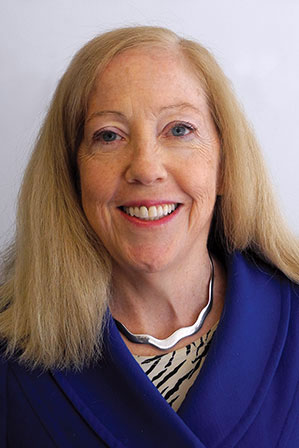EER Season: Thinking About the Precepts
Where We Stand
BY JULIE NUTTER

It’s EER season again.
The first step in crafting a persuasive EER is a review of the Foreign Service promotion precepts, or “competencies”—the skills, knowledge and abilities required to advance to the next level. Two characteristics of the current precepts stand out—their flexibility and their comprehensiveness. The precepts apply to many different circumstances, and the sub-categories under each skill group are numerous enough to capture widely diverse accomplishments.
These characteristics are not random. AFSA negotiates with management every year on its procedures to implement the promotion system—for example, on the Bureau of Human Resources’ instructions to promotion panels. Every three years AFSA negotiates the substance of the precepts. We review the procedures and content of the precepts to ensure fairness and general applicability, and to minimize circumstances that could prompt grievances.
Taking advantage of the precepts’ flexibility and their comprehensive nature is probably the wisest course of action when confronted with that blank EER form today.
Composing a compelling evaluation does not just fulfill an obligation to yourself or to your employees. It forges a link in a long chain of responsibility Foreign Service members have as stewards of the Service. Tying your day-to-day work or that of your employees to mission, bureau or overall U.S. foreign policy goals makes it clear that the annual promotion panel process not only maintains high standards of corps performance, but it binds our work to our foreign policy priorities. If EER drafting feels like an unwelcome distraction, take a deep breath and remember you are serving everyone by doing your best.
For some of you, this year’s report might be more about the journey than the destination. One important function of diplomacy is to create a bank account of trust with foreign interlocutors. When crises occur, diplomats draw on those accounts to partner with others to address the challenges and find solutions. Part of any diplomat’s job is building up those accounts, and you may have done more of that recently. It’s valuable but not high-profile work, often leading to insights on how to strengthen the U.S.-host country relationship.
Similarly, when your career takes an unwanted detour, or a busy policy account is suddenly quiet, it might be time to build up other types of accounts—bulwarks of substantive knowledge, deep wells of language expertise or a foray into mentoring that will pay off in future tours. Accomplishments this year might be skewed towards how you used that new knowledge or your mentoring role to guide newer employees or inter-agency colleagues, rather than how you used your skills to change the world. That’s okay—the precepts highlight the importance of mentoring employees in multiple places and using horizontal management (e.g., with peer-level colleagues). Finally, don’t forget “community service and institution-building”—key precepts in times of change.
This is not to say that recent management decisions have not put some Foreign Service members in possible jeopardy, especially those members who have opened their windows to compete to cross the threshold. Drastically lower promotion numbers have serious consequences, and we are doing all we can at AFSA to raise the alarm about the potentially grave damage continued lower promotion numbers will cause.
Our promotion system, modeled on that of the military, is unusual in the federal government. The Foreign Service Act of 1980 mandates that Foreign Service promotions be decided by independent panels, and the system has served the Foreign Service well. A 2010 State Department Inspector General report examined the panels, their work and their findings and concluded that the system is “fundamentally fair and trustworthy.” A 2013 Government Accountability Office report concurred with the IG’s conclusion, noting that although there are still improvements to be made, State had addressed deficiencies well.
Because we believe in the integrity of the promotion system and see it as integral to the strength of the Service, AFSA opposed the Bureau of Human Resources’ recent change to criteria for applying to cross the senior threshold. Given the limited number of greater hardship positions available, only a subset of FS-1s will be able to meet the new requirements for multiple greater hardship tours or obtain a waiver from HR.
AFSA supports streamlining the Professional Development Program—the fewer boxes to check, the better—but we favor keeping independent promotion boards to select the next generation of Senior Foreign Service leaders.
The promotion system belongs to members of the Foreign Service—its stewards. EER time is another chance to refine that stewardship. Happy drafting!

